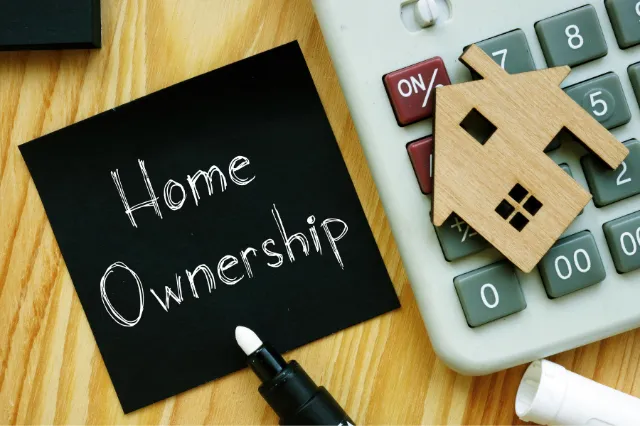If you’re a sole trader in Australia, knowing what tax deductions you can and can’t claim can help you reduce expenses and stay compliant with tax regulations. Claiming the right business expenses lowers your taxable income, meaning you legally pay less tax. However, claiming the wrong deductions could lead to penalties or tax issues.
In this guide, Ausfirst Lending Group simplifies tax deductions for sole traders, covering what you can claim, what to avoid, and how to keep your records organised for a hassle-free tax return.
What is a Tax Deduction?
A tax deduction is an expense that you incur while running your business, which reduces your taxable income. This means that the more legitimate deductions you claim, the less tax you may have to pay.
For example, if you earn $80,000 as a sole trader and claim $10,000 in valid business expenses, the ATO will only tax you $70,000. This means you pay less tax.
However, not all expenses are deductible. The Australian Taxation Office (ATO) has specific rules about what qualifies as a business expense. Claiming expenses incorrectly can result in penalties or audits, so it’s important to understand the guidelines.
General Rules for Claiming Deductions:
To legally claim a tax deduction, you must follow the ATO’s rules for claiming deductions, which ensure that your expenses are valid and compliant with tax regulations. Here are the three key requirements:
- The expense must be directly related to running your business.
- You must have records and receipts to prove the expense.
- If an expense is used for both personal and business purposes, only the business portion is deductible.
Now, let’s explore the tax deductions sole traders can claim to reduce taxable income and stay ATO-compliant.
Tax Deductions Sole Traders Can Claim
In Australia, you can deduct eligible business expenses to lower your taxable income. However, these expenses must be directly related to earning your income and must not be private or personal expenses.
Here are the most common tax-deductible expenses for sole traders in Australia.
1. Operating Expenses
These are the everyday costs of running your business. Accurate record-keeping ensures you can claim expenses correctly when filing your taxes.
Office Rent & Utilities
If you rent an office, co-working space, or commercial premises, the rent, electricity, water, and gas bills are fully deductible. However, if you operate from home, only a portion of these costs may be deductible, depending on the space used for business.
Phone & Internet Bills
If you use a mobile phone or internet connection for business, you can only claim the business portion of your bill. Keep detailed records or a log to determine the percentage of business use.
Office Supplies
Everyday essentials like stationery, printers, business software, and work-related subscriptions are fully deductible. Larger items like computers, desks, and office furniture may be claimed through depreciation over time.
2. Business Travel & Vehicle Expenses
If you use a car for business purposes or travel for work, you may be able to claim related expenses. However, you cannot claim personal travel or the private portion of car expenses.
Car Expenses
Sole traders can claim fuel, maintenance, registration, insurance, loan interest, and depreciation for business-use vehicles. The ATO allows deductions using the Logbook Method (track actual costs) or the Cents per Kilometre Method (78c/km for 2023–24, up to 5,000 km).
Travel Expenses
Business-related travel expenses, including flights, accommodation, meals, taxis, ride-shares, car hire, and public transport, are deductible. Only the business portion of a mixed trip can be claimed, so keeping a detailed travel itinerary is essential.
3. Marketing & Advertising Costs
Marketing and advertising expenses are fully tax-deductible, helping businesses reach customers, strengthen their brand, and grow.
Website & Digital Marketing
Expenses for website development, domain registration, hosting, and maintenance are deductible. SEO services, content creation, and online advertising can also be claimed. If you use social media and paid ads like Facebook, LinkedIn, Instagram, or Google Ads for marketing, these expenses are fully deductible.
Business Cards & Promotional Materials
Expenses for printing business cards, flyers, brochures, and promotional merchandise are deductible. Hiring freelancers or agencies for marketing is also claimable.
4. Professional Fees & Education
Sole traders often rely on professional services like accounting, legal advice, and business consulting to ensure compliance and efficient operations.
Accountant & Legal Fees
If you hire an accountant, bookkeeper, or lawyer for business advice, tax returns, or financial planning, these fees are fully deductible.
Training & Education
Courses, workshops, and training that enhance your skills or increase your earning potential, including business coaching, industry certifications, and relevant online courses, are deductible.
5. Insurance Costs
Business-related insurance is fully tax-deductible, offering financial protection against risks, liabilities, and unexpected losses. The right insurance protects your business assets while ensuring industry compliance.
Here are the common types of deductible insurance:
Public Liability Insurance
Covers legal claims for injuries, property damage, or accidents caused by your business. Essential for businesses interacting with clients or the public, it helps cover legal fees and compensation costs.
Professional Indemnity Insurance
Protects consultants, advisors, and service providers from claims of negligence or mistakes that result in client losses. Many industries require this coverage for compliance.
Business Equipment Insurance
It provides financial protection for replacing or repairing essential tools, computers, and machinery if they are stolen, damaged, or lost, helping to keep business operations running smoothly.
6. Home Office Expenses (For Sole Traders Working from Home)
If you run your business from home, you may be able to claim a portion of household expenses based on the space used for work. Common eligible expenses include:
- Electricity and Internet based on business use.
- Depreciation for computers, printers, and office furniture.
- Office Furniture and Supplies like desks, chairs, and shelving.
The ATO provides two methods for claiming home office expenses, allowing sole traders to choose the most suitable option. The Fixed Rate Method lets you claim a set amount per hour for home office use, while the Actual Cost Method requires tracking and claiming the exact business portion of your expenses.
7. Super Contributions (For Retirement Savings)
Unlike employees, sole traders are not required to contribute to super, but making voluntary contributions to your super fund is tax-deductible. This helps lower your taxable income while also growing your retirement savings. The concessional contributions cap for 2023–24 is $27,500 per year, so staying within this limit ensures you maximise your deductions without exceeding the threshold.
8. Bank Fees & Business Loan Interest
Sole traders can claim bank account fees, interest on business loans, and merchant fees from payment processing services. However, interest on personal loans or credit cards used for non-business expenses cannot be claimed.
Maximising tax deductions lowers your taxable income, improves cash flow, and keeps your business financially stable. Understanding what you can claim ensures compliance with tax regulations while making the most of your eligible expenses.
Tax Deductions Sole Traders Cannot Claim
While many business expenses are tax-deductible, some costs cannot be claimed. Claiming ineligible expenses may lead to ATO audits, penalties, or rejected claims, so it’s important to know what’s not deductible under Australian tax law.
Below are the most common expenses sole traders cannot claim:
1. Personal Expenses
The ATO does not allow deductions for expenses that are personal in nature and not directly related to running your business. Even if you occasionally use them for work, they must be primarily business-related to qualify.
General Clothing
Everyday clothing, even if worn for work, is not deductible. Only specific protective gear or uniforms required by your industry can be claimed. Dry-cleaning costs for regular clothing are also ineligible.
Personal Phone & Internet Use
If a phone or internet plan is used for both business and personal purposes, only the business portion can be claimed. A full deduction is not allowed unless the service is solely for business use.
Childcare & Education Costs
Childcare expenses, including babysitting, are not tax-deductible, even if required while running your business. Similarly, school fees and tuition for children or family members cannot be claimed.
Gym Memberships & Wellness Expenses
Even if fitness is essential to your profession (e.g., personal trainers, athletes), gym memberships, personal training sessions, or wellness programs are not tax-deductible.
Commuting Costs
Travel between home and your regular place of business is considered private and cannot be claimed. This applies even if you take public transport or drive a business vehicle to work.
Personal Insurance
Premiums for personal insurance policies, such as life insurance, income protection (if not through super), trauma cover, and private health insurance, are not tax-deductible for sole traders.
2. Fines, Penalties & Legal Fees
The ATO strictly prohibits deductions for any fines, penalties, or legal breaches, regardless of whether they were incurred while conducting business.
Traffic Fines & Parking Tickets
Speeding tickets, red-light fines, and parking infringements are personal liabilities and are not deductible, even if they were incurred while travelling for work.
ATO Penalties & Late Fees
Any late payment penalties, interest charges, or fines imposed by the ATO due to overdue tax obligations are not deductible.
Legal Fines
Any fines resulting from a breach of the law, including workplace safety violations or environmental infractions, are ineligible for deductions.
3. Non-Business Travel Costs
Travel expenses must be directly linked to your business activities to qualify as deductions. Personal or mixed-use travel costs are generally not deductible.
Holidays & Leisure Trips
Any travel primarily for leisure, even if you conduct business while away, is not deductible. If a trip is part business and part personal, only the business portion can be claimed.
Family & Companion Travel
If you bring family or a companion on a business trip, their expenses (flights, accommodation, meals, etc.) cannot be claimed, even if they assist you informally.
Luxury & Entertainment Travel
The ATO does not allow deductions for luxury travel, such as high-end resorts or cruises, even if business discussions take place during the trip.
4. Meals & Entertainment
While some food and drink costs are deductible, most entertainment and dining expenses cannot be claimed.
Client Entertainment
Costs for taking clients to dinner, business lunches, or corporate hospitality events cannot be claimed, even if it’s for business discussions. This includes concerts, sporting events, and other forms of entertainment.
Social & Recreational Activities
Expenses related to holiday parties, networking events, recreational outings, and team-building activities are not deductible unless classified under fringe benefits tax (FBT) for employees.
Alcohol & Restaurant Bills
Food and drinks purchased for social or business networking purposes cannot be claimed unless part of work-related travel or provided in certain conditions to employees.
5. Private or Capital Expenses
Some business expenses, especially large purchases or personal assets, are not eligible for an immediate tax deduction. Instead, these costs may need to be depreciated over time or may not be deductible at all if they are primarily for personal use.
Private Loans & Credit Card Interest
Interest on personal loans or credit cards cannot be claimed unless directly used for business purposes. Keeping separate business and personal accounts helps with accurate deductions.
Mortgage Payments & Rent (Non-Business Use)
Rent, mortgage, groceries, and household bills cannot be claimed unless you operate a home office, in which case only the business portion is deductible.
Home Renovations & Repairs
Renovations, extensions, or general repairs to personal-use areas of your home are not deductible, even if you work from home. Only repairs related to a dedicated home office space may be partially claimed.
Assets Over $20,000 (Immediate Deduction Limits Apply)
While some business assets can be immediately written off, those exceeding the instant asset write-off threshold cannot be fully deducted in the year of purchase. Instead, they must be claimed gradually over time using depreciation rules, spreading the deduction across multiple tax years.
Understanding what you can’t claim is just as important as knowing what you can claim to avoid ATO audits and penalties. Keeping clear records and separating business and personal expenses ensures compliance.
Tips for Maximising Tax Deductions Legally
Maximising tax deductions requires smart planning and financial organisation. By tracking expenses, consulting experts, and staying informed on tax rules, you can legally reduce your taxable income and keep more money in your business. Here’s how:
Plan Ahead
Don’t wait until tax time to organise your finances. Keep track of your business expenses throughout the year to ensure you claim all eligible deductions. Keeping a habit of recording transactions as they happen will make tax time stress-free. Proactive financial planning not only simplifies tax time but also strengthens your overall business strategy.
Work with a Professional
An accountant or tax professional can help you identify legitimate deductions, avoid costly mistakes, and structure your finances efficiently. Their expertise ensures you’re maximising your tax savings while staying compliant. They can also provide insights into deductions relevant to your business activities that many sole traders overlook.
Consult a Finance Broker
If you’re considering a business loan, vehicle finance, or equipment leasing, a finance broker can guide you toward tax-effective solutions. Interest on business loans, leasing costs, and certain financing fees may be deductible, so working with an expert ensures you’re making the right financial decisions while maximising deductions.
Keep Digital Records
Store all receipts, invoices, and bank statements in a secure digital format. Cloud-based accounting tools make it easier to categorise expenses, generate reports, and provide records if needed. Pairing professional advice with the best accounting tools can simplify your financial management, making it easier to categorise expenses and ensure you’re maximising deductions.
Stay Updated
Tax laws change, and new deductions or adjustments may apply to your industry. Regularly reviewing government updates or consulting with professionals will ensure you’re always claiming the right expenses and remaining compliant.
By taking a proactive approach and applying these tips for sole traders, you can legally reduce your taxable income and keep more money invested in growing your business.
Need help with business funding and tax deductions? Our expert finance brokers can help you secure tax-effective funding while ensuring you claim all eligible deductions. Contact us today!
Claim Your Tax Deductions and Save More
Understanding what you can and can’t claim as a sole trader in Australia is essential to reducing your tax bill while staying compliant with the ATO. By keeping detailed records and claiming only eligible deductions, you can legally lower your tax liability and keep more of your earnings.
With the right approach, managing finance for sole traders becomes easier and more efficient. Ausfirst Lending Group supports sole traders in making smarter financial decisions, ensuring they maximise savings while staying on top of their obligations.
Don’t miss out on tax savings—contact our finance brokers for sole traders today and maximise your deductions!
Frequently Asked Questions
Yes, you can still claim tax deductions even if your business is running at a loss. These deductions may help reduce your taxable income in future years when your business starts making a profit. However, you should be aware of non-commercial loss rules, which may limit your ability to offset business losses against other income.
Yes, if you run a side business as a sole trader while working a full-time job, you can still claim tax deductions for your business expenses. However, your business profits will be added to your salary income, which may affect your overall tax rate.
If you use a personal loan or credit card for business expenses, you may be able to claim the business portion of the interest as a tax deduction. However, interest on personal expenses is not deductible, so keeping clear records of business-related transactions is essential.
Yes, if you refinance a business loan, certain costs like loan establishment fees, ongoing charges, and interest payments may be deductible. However, if you refinance a personal loan, only the business portion of the loan can be claimed.
If you purchase a commercial property or an investment property through your business, the interest on the loan, property maintenance, and related expenses are usually tax-deductible. However, personal property loans are not deductible unless a portion is used exclusively for business.



